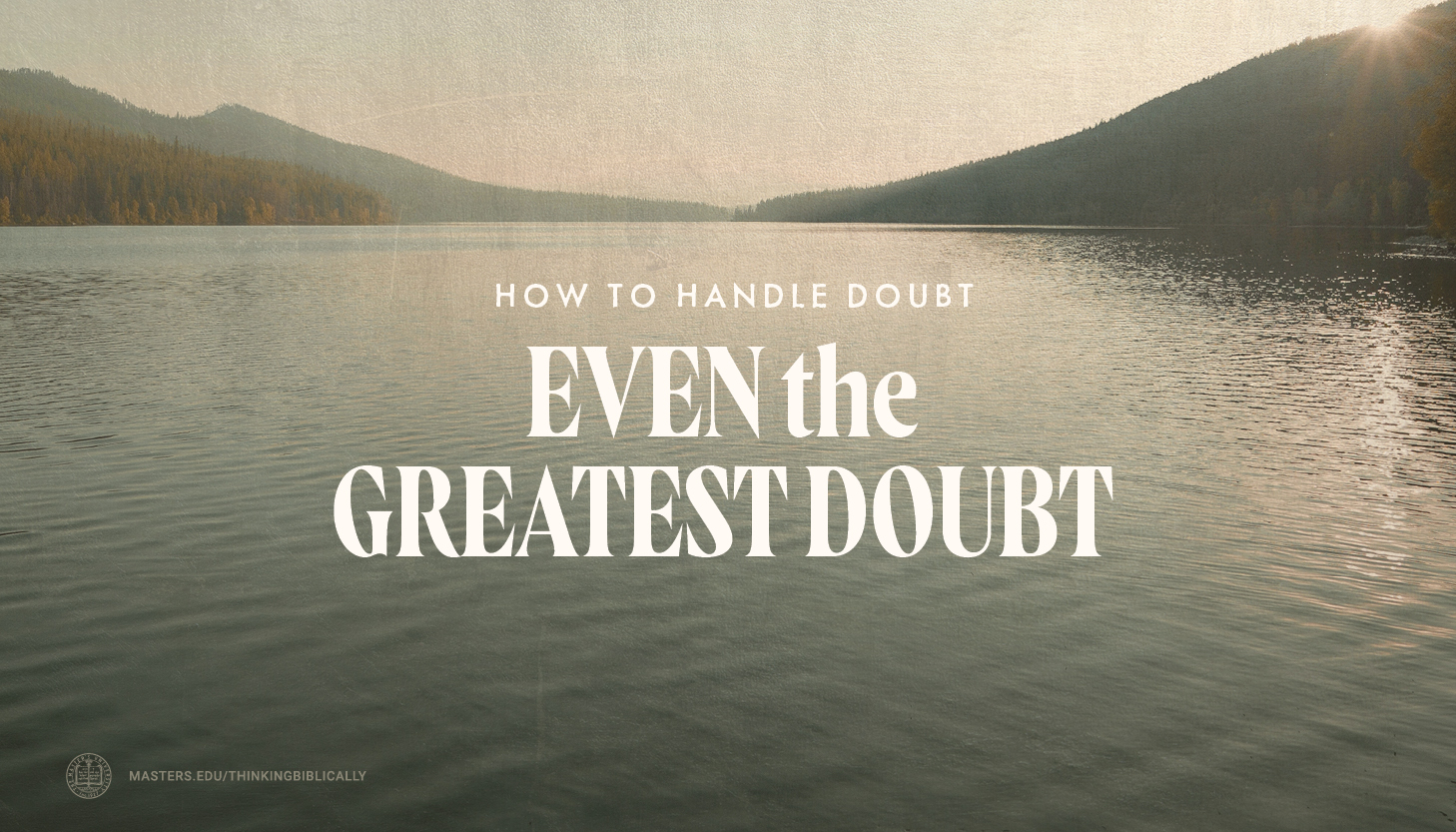
We affirm that John the Baptist is a believer. He was so convinced that Jesus was the promised Messiah and Redeemer, that he said in John 3:30, “He must increase, but I must decrease.”
In other words, “It’s time for me to fade away. I’m done. I was to be the forerunner. I was to announce the Messiah, to point to Him, to present Him. I’ve done it. Now I fade away.”
In every sense that we can look at, we have to conclude that John believed Jesus was the Coming One. The Father affirmed it. The Spirit affirmed it. Jesus Himself affirmed it.
But then Herod locked John up in prison. He slammed him in a dungeon down underneath Fort Machairus, some miles east of the Dead Sea, out in the wilderness. So when we pick up our story in Luke 7, John has been in prison for many, many months.
He has no firsthand information. He can’t hear Jesus. He can’t see Jesus. But he has some opportunity for contact with his disciples. And the disciples of John report to him the things that have occurred around Jesus — perhaps things like Jesus raising the son of the widow of Nain.
But John is beginning to doubt. Does he believe Jesus is the Coming One? Sure. Does he have ample evidence? Of course. But doubt was growing on the edges of his faith. Things just weren’t going the way he thought they should go.
And so he summons two of his disciples and sends them to the Lord, saying, “Are You the One who is to come, or should we look for someone else?” (Luke 7:19)
The “One who is to come” is a technical term for the Messiah that’s used in the New Testament in many places. It’s like saying, “Are You the Messiah? Are You the One promised in the Old Testament?”
We are now coming face to face with John’s doubts. What created those doubts? What caused him to doubt what he believed? Why is he saying, “Lord, I believe; help my unbelief?” Why would he ever say, “Or do we look for someone else?” Why would he ever say that?
Well, doubt had crept in. And that hadn’t destroyed his faith. I think it’s a tremendously interesting point that his faith is proven by the way he reacts to his doubt. If he had no trust in Jesus, he wouldn’t go to Jesus to ask Jesus to dispel his doubt.
He is asking Jesus, whom he believes in and doubts at the same time, to resolve his doubt. And he knows that Jesus is the only one who can resolve that doubt. So he’s really struggling against a weakness in the flesh. He’s struggling against a temptation.
He does what you always need to do with doubt: Go directly to the Lord.
The worst thing you could do with your doubt is keep it to yourself. He’s saying, “I’ve got some doubts and I need to get an answer, and the way to get the answer is to go directly to the Lord.” And in that sense, he proves his faith.
This post is based on a sermon Dr. MacArthur preached in 2001, titled “Why the Believer Doubts, Part 1.” In addition to serving as the pastor of Grace Community Church and the voice of Grace to You, Dr. MacArthur is the chancellor of The Master’s University in Santa Clarita, Calif. You can learn more about TMU at masters.edu.


The Master’s University and Seminary admit students of any race, color, national and ethnic origin to all the rights, privileges, programs, and activities generally accorded or made available to students at the school. It does not discriminate on the basis of race, color, national and ethnic origin in the administration of its educational policies, admissions policies, scholarship and loan programs, and athletic and other school-administered programs.
21726 Placerita Canyon Road
Santa Clarita, CA 91321
1-800-568-6248
© 2024 The Master’s University Privacy Policy Copyright Info
| Cookie | Duration | Description |
|---|---|---|
| cookielawinfo-checkbox-analytics | 11 months | This cookie is set by GDPR Cookie Consent plugin. The cookie is used to store the user consent for the cookies in the category "Analytics". |
| cookielawinfo-checkbox-functional | 11 months | The cookie is set by GDPR cookie consent to record the user consent for the cookies in the category "Functional". |
| cookielawinfo-checkbox-necessary | 11 months | This cookie is set by GDPR Cookie Consent plugin. The cookies is used to store the user consent for the cookies in the category "Necessary". |
| cookielawinfo-checkbox-others | 11 months | This cookie is set by GDPR Cookie Consent plugin. The cookie is used to store the user consent for the cookies in the category "Other. |
| cookielawinfo-checkbox-performance | 11 months | This cookie is set by GDPR Cookie Consent plugin. The cookie is used to store the user consent for the cookies in the category "Performance". |
| viewed_cookie_policy | 11 months | The cookie is set by the GDPR Cookie Consent plugin and is used to store whether or not user has consented to the use of cookies. It does not store any personal data. |